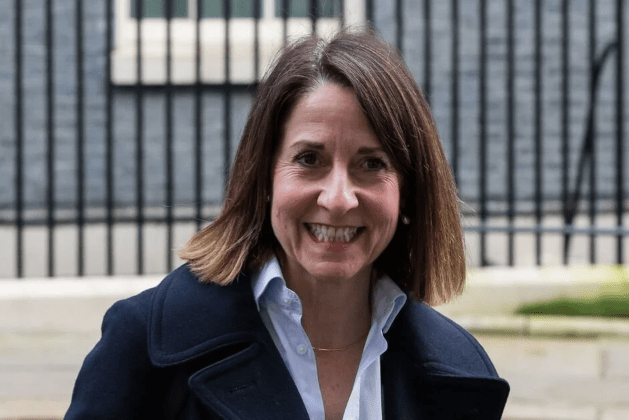Social media companies will soon be forced to take tougher action against cyberflashing or risk multi-billion-pound penalties, the government has warned.
Technology Secretary Liz Kendall is expected to unveil the move in her keynote speech at the Labour Party conference in Liverpool.
She will demand platforms step up efforts to detect and remove unsolicited explicit images with fines of up to 10% of global revenue, and even the possibility of being blocked in the UK, for those that fail.
Tech firms face cyberflashing crackdown
Under new measures, cyberflashing will be listed as a “priority offence” within the Online Safety Act.
This means platforms must take stronger responsibility for ensuring users – particularly children – are not exposed to unwanted nude images or explicit videos.
Speaking to activists, Ms Kendall will say: “Keeping children safe online is non-negotiable. That is why my first act as Secretary of State was to force social media companies to find and remove content that promotes suicide and self-harm.
And today I can announce I will go further. Making cyberflashing a priority offence. So platforms will be required – by law – to detect and remove this material. Because what is illegal offline must be illegal online.”
A Growing Online Menace
Cyberflashing was officially criminalised in England and Wales in January 2024. Offenders now face prison terms of up to two years.
The issue is widespread. A YouGov survey found that almost a third of girls aged 12–18 in England had received unsolicited sexual images, with one in 20 targeted more than once.
Campaigners say these figures highlight the urgent need for regulation, as many victims are left feeling unsafe, intimidated, and traumatised.
Why This Crackdown Matters
The move signals a shift in how online safety is policed in the UK. While platforms have long faced criticism for failing to remove harmful material quickly, the government is now raising the stakes by linking compliance to significant financial penalties.
Critics argue that tech firms have prioritised profits over user safety for too long. Supporters of the new measures say the threat of fines and service restrictions will finally force companies to take responsibility.
This push comes as part of a broader crackdown on harmful online behaviour, with the government promising to treat online abuse with the same seriousness as crimes committed in person.






